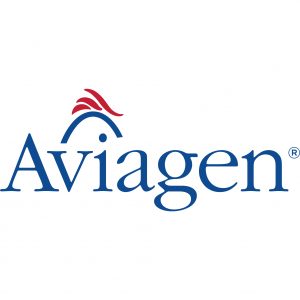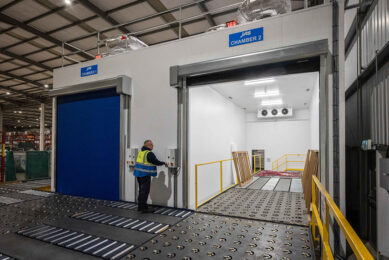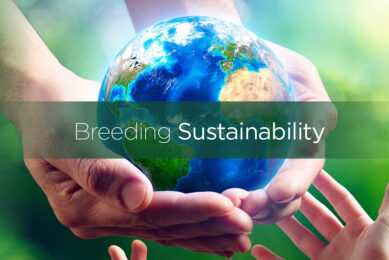Breeding Sustainability: Reducing CO2 in the poultry sector
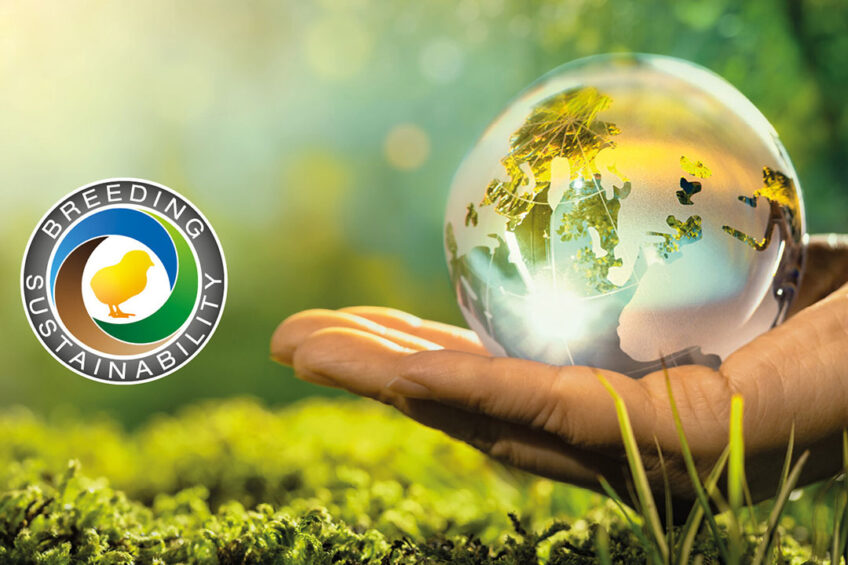
Sustainability is the key to producing enough food for just over 8.5 billion people by 2030, without overwhelming our planet. Aviagen has made “Breeding Sustainability” a top priority. Director of Global Genetics Santiago Avendaño and Global Manager of Welfare, Sustainability and Compliance for Aviagen Group Tim Burnside tell the story of the company’s contribution to reducing the carbon footprint of the poultry sector, while at the same time keeping welfare at the forefront of its balanced breeding.
Why is sustainability important to Aviagen?
Santiago: We care about helping our customers feed the world. We care about the sustainability of our business and of our customers’ businesses, as well as protecting the planet for our children and grandchildren. We started our study on how we contribute to the carbon footprint reduction of the global poultry sector, because we are committed to being transparent and accountable.
Why is the conversation about sustainability important, and why now?
Tim: Our population is growing steadily, while still today many people in the world suffer from hunger. Zero Hunger is one of the UN’s Sustainable Development Goals prioritised by the International Poultry Council and reflected in our Top 5 Commitments. As an affordable, healthy, accessible and popular protein, poultry is a good solution to world hunger.
At the same time, our earth is warming, and food production contributes around 25% of global greenhouse gas (GHG) emissions. Poultry production is naturally gentler on the environment and responsible for only 6% of the food sector’s emissions.
Sustainability is the answer to meeting a growing demand responsibly. As a primary breeder, we are custodians of a large part of the food chain. We take this responsibility seriously, and believe our future depends on the balanced breeding for sustainability work we do today.
Watch a video illustrating Aviagen’s CO2 Reduction Contribution to the Global Poultry sector
What is meant by “Breeding Sustainability,” and how does this support the environment?
Santiago: We take a balanced, holistic approach to breeding. This means we maintain a broad and diverse gene pool that enables us to balance the biological and economic efficiency of poultry production, right along with bird performance, health and welfare. One of our top selection factors is feed conversion ratio (FCR). FCR is the rate at which birds convert feed into live weight, and is the key driver of biological and economic efficiency. By creating ongoing advancement in FCR, we are Breeding Sustainability for the planet and our customers, the world’s poultry producers, and promoting social sustainability by enhancing their ability to feed the world.
How exactly does a better FCR contribute to environmental sustainability?
Santiago: Improved FCR delivers great benefits for the planet on many levels. Less feed required to grow robust, healthy birds mean fewer hectares of land are needed to grow the feed. This land can be repurposed for other crops or used for natural preservation. In addition, when birds eat less, they excrete less waste as environmental pollutants and greenhouse gases. Thus, you can begin to see that the FCR advantage has a chain reaction of environmental advantages.
How can you quantify the environmental impact Aviagen’s FCR contributions have on the global poultry sector?
Tim: Our continuing FCR improvements translate to a 1% annual lowering of the carbon footprint of the global poultry sector. This reduction has happened over a period of 50 years. Thus, today’s broilers produce a 50% smaller carbon footprint than birds in 1970, and birds in 2030 are projected to produce about 15% less carbon footprint than those of today. This all adds up to steady and exciting progress for the entire poultry sector.
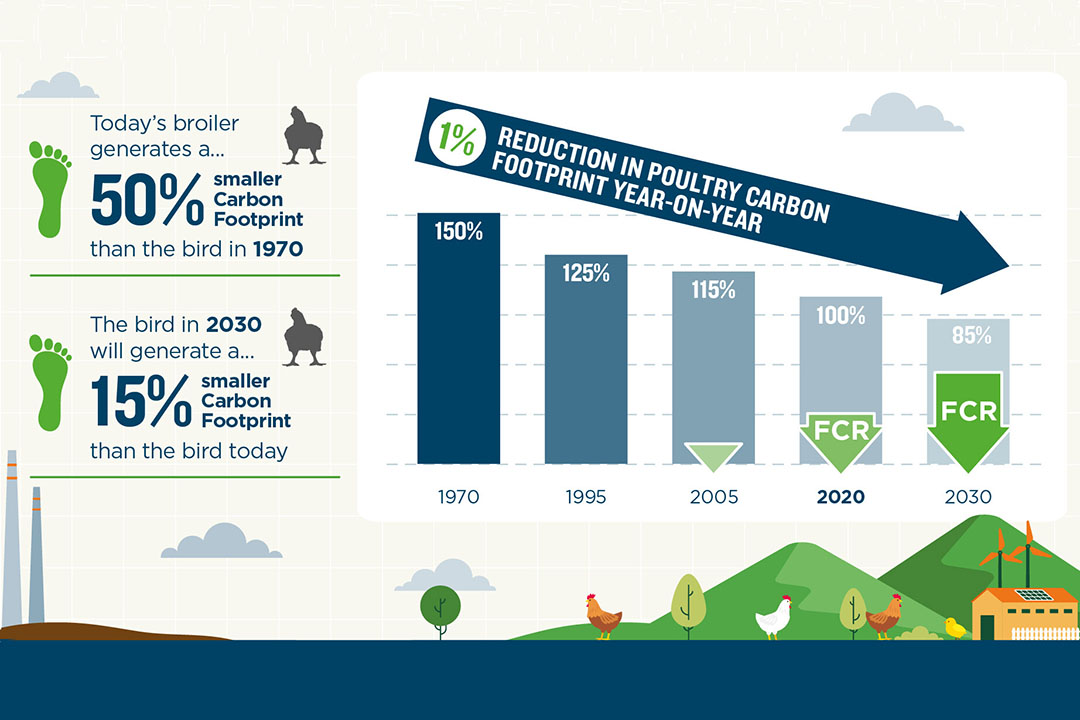
Can welfare and sustainability goals be achieved simultaneously?
Tim: We believe that animal welfare and sustainability go hand in hand. Our research proves without a doubt that healthy birds with good welfare have better liveability and productivity and are more feed efficient. All these benefits add up to greater environmental sustainability, as well as economic sustainability for our customers. They, in turn, are better equipped to ensure food security for people in the communities they serve, helping to put an end to world hunger.
What are your future Breeding Sustainability goals?
Santiago: Through Breeding Sustainability, Aviagen strives to advance the biological and economic efficiency of poultry production. This is not an end goal, as we realise that sustainability is a journey, not a destination. Along this journey, ongoing improvement is critical as we work to increase the food supply to meet a growing world population responsibly, while always looking for new ways to create a better future for our customers, the planet and its people.


